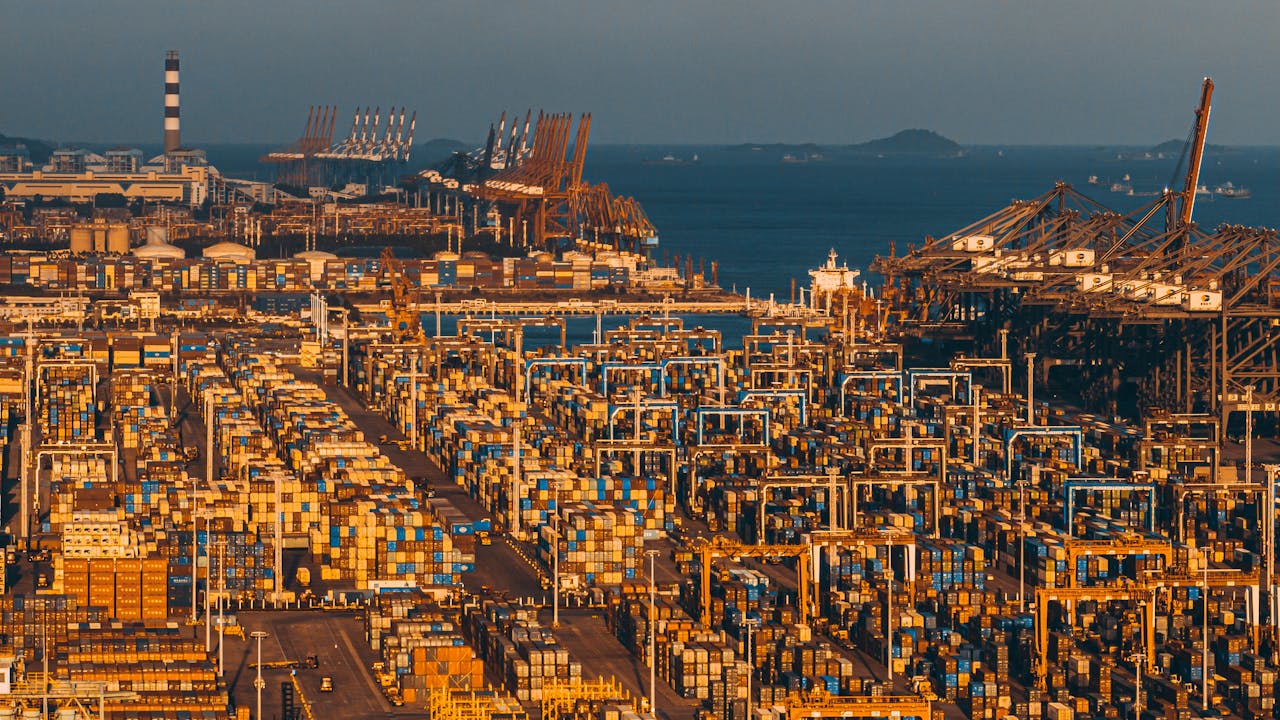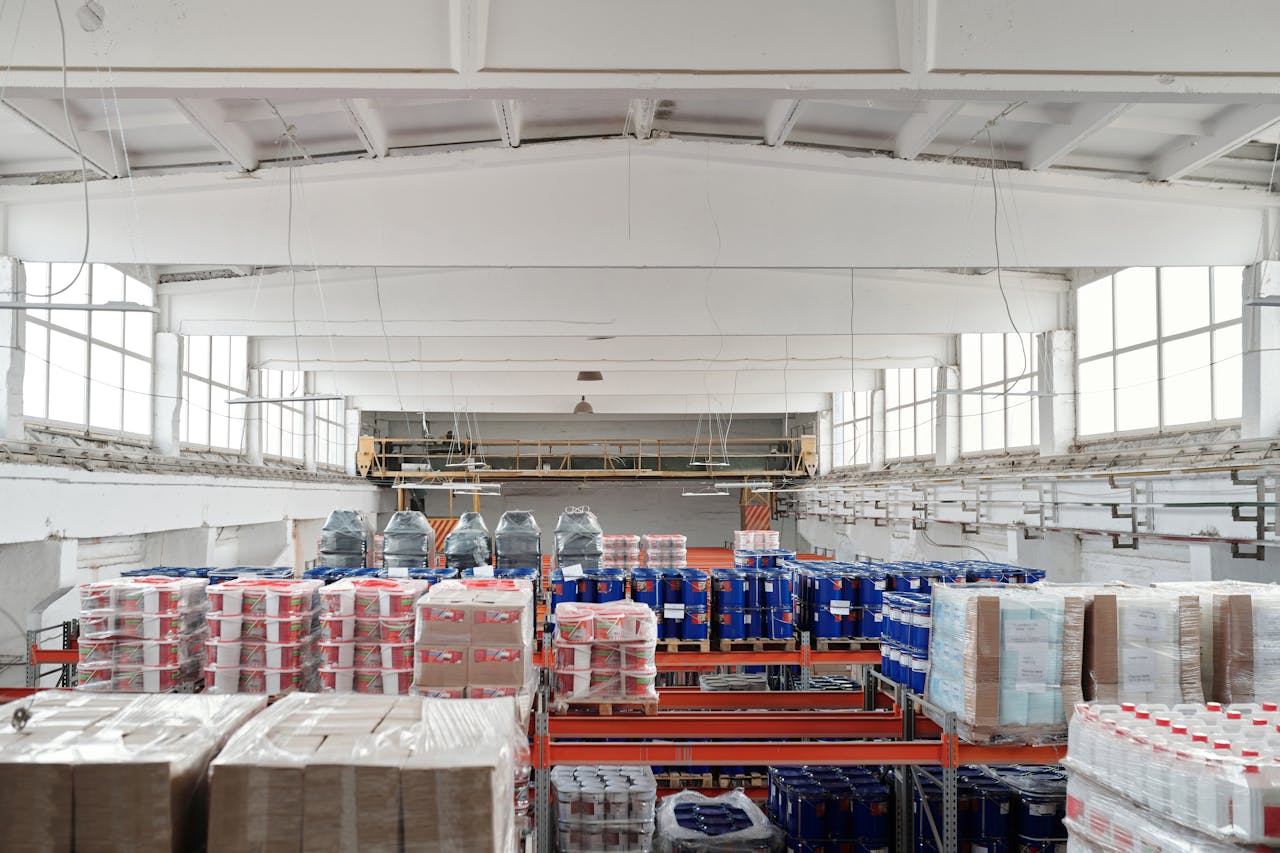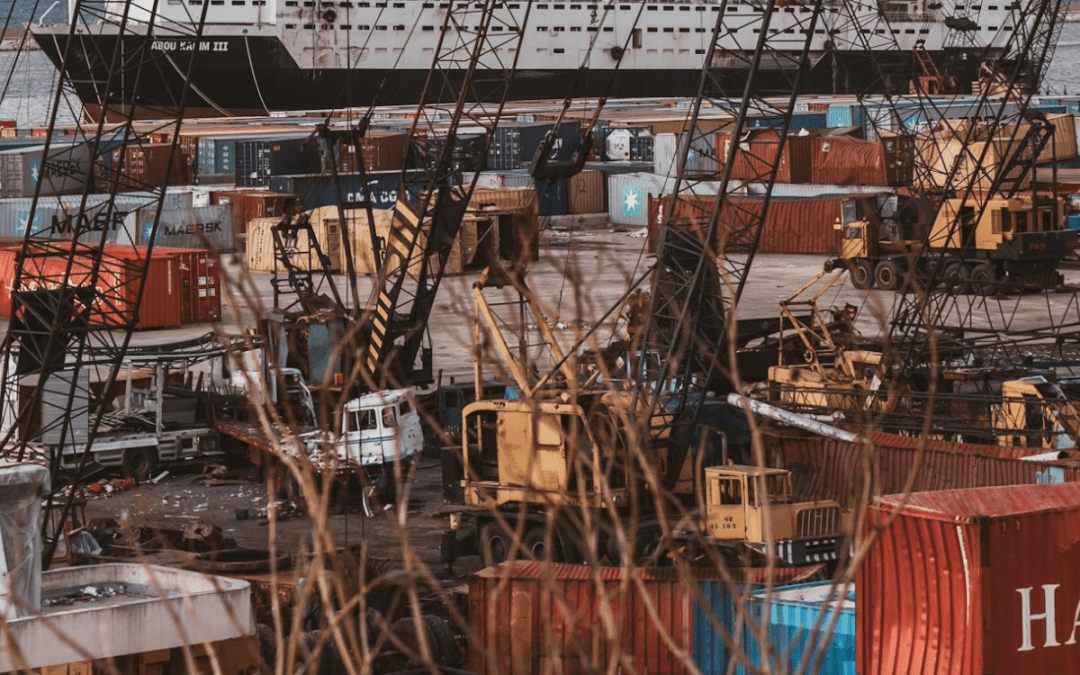Like a long road trip, international shipping has its share of unexpected bumps. Flat tyres, diversions, wrong turns – it’s not always smooth sailing.
Risks are inherent in freight forwarding, but that doesn’t mean you’re powerless to stop them. By understanding the risks and the measures you can take to avoid them, you lessen the chances of something going wrong.
Freight Forwarding Risks: What Are They?
There are risks involved in every aspect of shipping. Some risks are minor, whereas others can have significant consequences.
Here are the types of risks to look out for through the shipping process…
Physical Risks
Damage or loss of cargo due to accidents, adverse weather, theft or natural disasters are all physical risks.
Operational Risks
Blocks like port congestion, issues with carriers or customs problems are operational risks that can affect your shipments.

Financial Risks
These are things like unexpected charges, currency fluctuations and buyers who don’t pay on time – or at all.
Legal And Regulatory Risks
Risks in this area come down to things like accidental non-compliance with regulations, new trade restrictions, and sanctions.
Real-World Example
Remember the Suez Canal blockage incident? In March 2021, a large container ship got stuck in the waterway, blocking other ships from passing through. This caused a huge traffic jam that heavily influenced global trade and led to excruciating delays in getting goods to their destination.
The Suez Canal blockage is a prime example of how a physical risk can materialise, resulting in global shipping disruption.
Avoiding Physical Risks
There are several ways of reducing the likelihood of physical shipping risks, including…
Proper Packaging
The methods you use to pack your goods protect them against damage caused during shipping.
By using appropriate packaging and securing your cargo effectively, it is far less likely to get knocked or broken in transit which could result in delays, rejection from the buyer and time and money wasted.
Read more about proper packing in our blog.

Cargo Insurance
If your cargo gets hit by adverse weather conditions or run off the road, you’re in trouble. Cargo insurance isn’t a legal necessity but taking out a policy helps protect you against financial losses due to damage or loss of cargo.
Wondering how cargo insurance works? Read this.
Tracking And Monitoring
Modern tracking technology lets you monitor your shipment’s every move, helping to identify issues before they snowball and track and trace shipments for up-to-the-minute information.
Secure Transportation
Choose a reliable carrier when shipping goods. Reputable carriers will have a good, proven track record and effective safety and security measures.
Managing Operational Risks
How can you manage operational shipping risks? Here are our top three suggestions.
Contingency Planning
Millennium always encourages businesses to have backup plans (we can help make one) in place in case of unexpected delays or disruptions. Without a contingency plan, you risk delays, fines and a disappointed customer base.
Proactive Communication
Communication throughout the shipping process can become unclear, and fast, resulting in delays and frustration. That means that fostering open, effective communication is crucial, especially between you and your freight forwarder.
Millennium is quick to update clients on situation changes, but our clients can work with us to call in advance of upcoming shipments, giving us as much time as possible to plan and prioritise.
Flexibility
Be prepared to adapt to changing circumstances and consider alternative routes or modes of transport if necessary. A freight forwarder like us will lead the charge on this, but you may need to agree to changes to the original plan.
Navigating Financial And Legal Risks
This section focuses on how to avoid financial and legal freight forwarding risks.
Payment Security
By using a letter of credit or a secure payment platform, you can reduce your susceptibility to financial risk.
A letter of credit, or L/C, is a financial document issued by a bank on behalf of the buyer. It works as a guarantee that the seller will receive payment as long as they meet the terms of the contract.
Getting an L/C is complicated, full of jargon and involves extra fees. Use a trustworthy freight forwarder, just like us, to help you understand and guide you through the process.
Incoterms
Do you know your Incoterms? These international shipping codes clarify responsibilities and minimise disputes. They’re fairly lengthy and like learning a new language, but they’re worth learning because they help maintain clarity around things like…
- Who is responsible for the cost of transport, insurance and customs duties
- When the risk transfers from the seller to the buyer
- Terms of delivery
For everything you need to know about Incoterms, read this.
Regulatory Compliance
Adhering to the varying rules and regs of different countries is incredibly important when shipping goods worldwide.
Customs and trade regulations can be very complicated and failure to comply might end up in fines, fees and delays. It is heavily advisable to work with a knowledgeable freight forwarder who can ensure you remain fully compliant with local and international rules the whole way through.
Freight Risks Are Avoidable If You Know How
Freight forwarding risks are a reality, but they don’t have to be a roadblock.
With careful planning, proactive strategies, and a trusted partner like Millennium Cargo by your side, you can confidently navigate the global supply chain and ensure your shipments reach their destination safe and sound.
Ready to find out how we can help? Get in touch with Millenium today.

